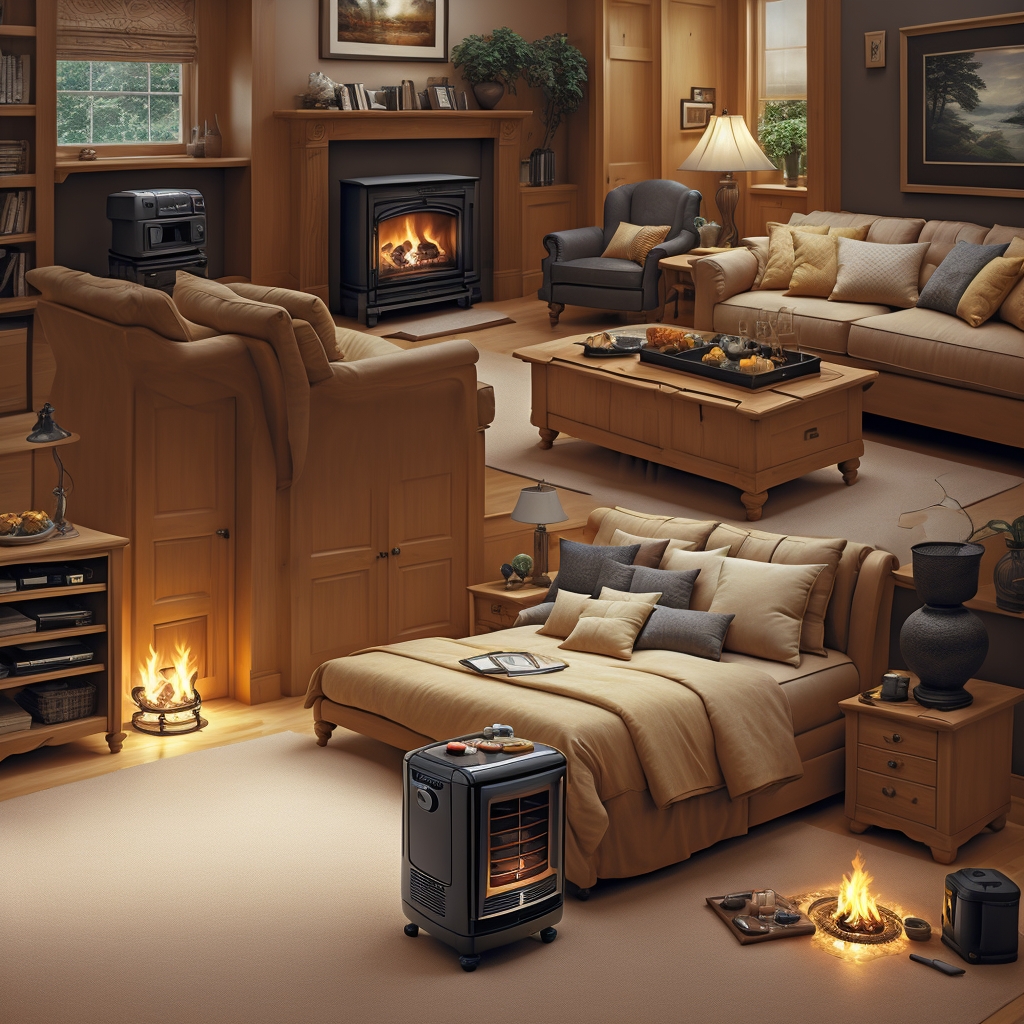“What’s Causing Your Space Heater to Keep Turning Off? Find Out Now!”

A space heater is designed to continuously operate until the surrounding environment reaches the thermostat’s predefined warmth level. However, if the appliance prematurely ceases operation, it can be quite discomforting and signifies that you aren’t getting your money’s worth. So, what should be done to rectify this? The optimal solution is to identify the underlying issue causing the space heater to repeatedly stop working. Here are several potential culprits and associated solutions.
Firstly, issue might be the heater’s placement on an uneven or excessively soft floor. Contemporary space heaters possess an in-built tip-over protective function that automatically switches it off if the heater is inclined past a particular angle. Imagine the damage that could be caused if your heater is inadvertently tipped over by a child or pet while it’s in use. Potential repercussions include injuries from burns or even a fire.
In such situations, the heater’s in-built tip-over protective feature comes in handy. This long, button-like feature is conveniently positioned on the heater’s base and is in contact with the floor at all times. When the heater is upright and this button is pressed, the heater will continue to operate. However, if it isn’t pressed, indicating that the heater is tilted, it will automatically shut down. If the heater is placed on an uneven or soft surface leading to constant instability, this protective feature may falsely interpret this as the heater being tipped over, resulting in it being turned off.
Solution: Ensure that the heater is placed on a stable, level surface. In case there’s a carpet or rug underneath, support the heater with a solid, heat-resistant mat to ensure stability.
Secondly, if the breaker trips every time the heater is activated, there could be an overload situation. If the heater stops operating due to a tripped or faulty circuit breaker, the temporary solution would be to reset the breaker.
However, a more permanent solution would require surveillance of energy consumption patterns and opportunities for load shedding. This is particularly important during winters when usage of high-energy appliances results in elevated energy demands. The circuit breaker can also be replaced if it repeatedly trips or is found to be defective.
Solution: After resetting the circuit, progressively turn off appliances in the same area to ascertain if it impacts the heater’s operation before proceeding.
Thirdly, the outlet circuit might also be causing issues. If the heating unit is drawing excessive electricity, the circuit breaker might not trip but the power supply from the outlet could be compromised. Typically, this happens when the cable is insufficient to carry the electrical load.
Solution: Try unplugging all devices simultaneously and monitor if the circuit shuts off. In case improper grounding is the source of the problem, professional assistance is recommended.
Fourth, overheating could be another possible reason for the space heater’s sudden shutdown. This could occur if the heating unit has been operational for an extended time and if the air filter is clogged inhibiting air flow. Rectifiable issues such as enclosing the heater in a poorly ventilated space and placing objects nearby can contribute to overheating.
Solution: Ensure that the heater is placed in a well-ventilated area and regularly cleaned to allow unobstructed air flow.
Fifth, the power supply from the outlet may not suffice the space heater’s demand given its high electrical consumption.
Solution: Opt for an outlet that can deliver the required output power for safe and sustained heater operation. Rewire the outlet, preferentially by a professional, with a suitable breaker for this purpose.
Lastly, recurrent halts in heater operation might be a warning sign of a worn out heater. A malfunctioning thermostat or the heating element might be underperforming or overheating, thereby forcing the heater to shut down repeatedly.
Solution: If you’ve crossed off all the aforementioned possibilities and noticed weakened performance, consider replacing your current space heater with a new one.
Implicitly related queries:
What is the typical lifespan of space heaters?
Typically, space heaters need replacement every 15-20 years depending on the frequency of usage, maintaining coil temperatures between 750-1000°F. Heaters with lesser durable components might need to be replaced earlier.
Can a hot air gun double up as a space heater?
No, hot air guns are handheld heating devices employed for household tasks like thawing blocked pipes or soldering. Their operating time isn’t meant to be long, usually not exceeding 10 minutes, hence unsuitable for space heating.
